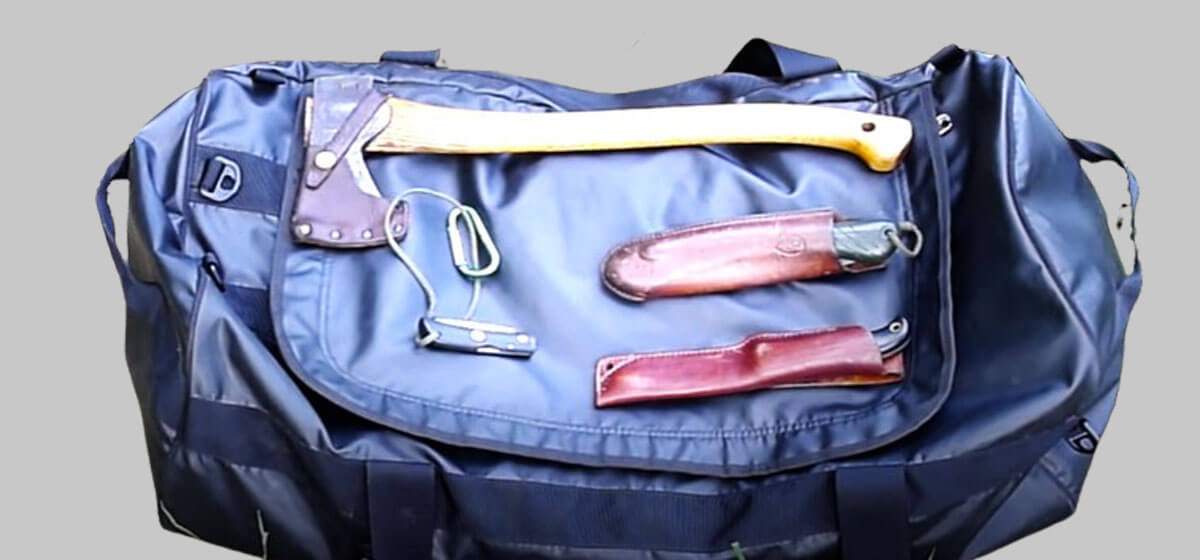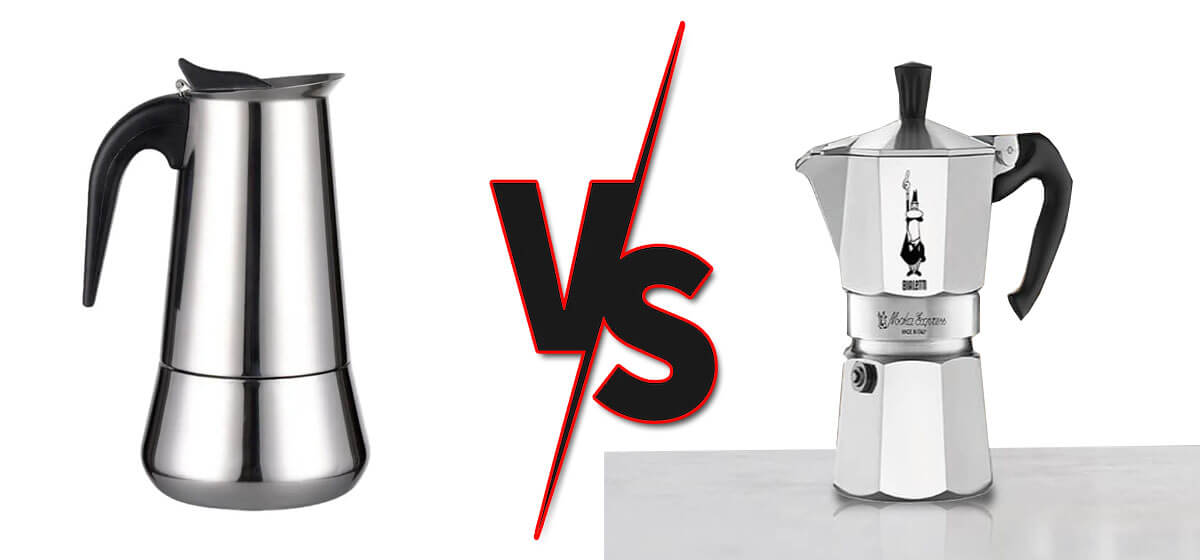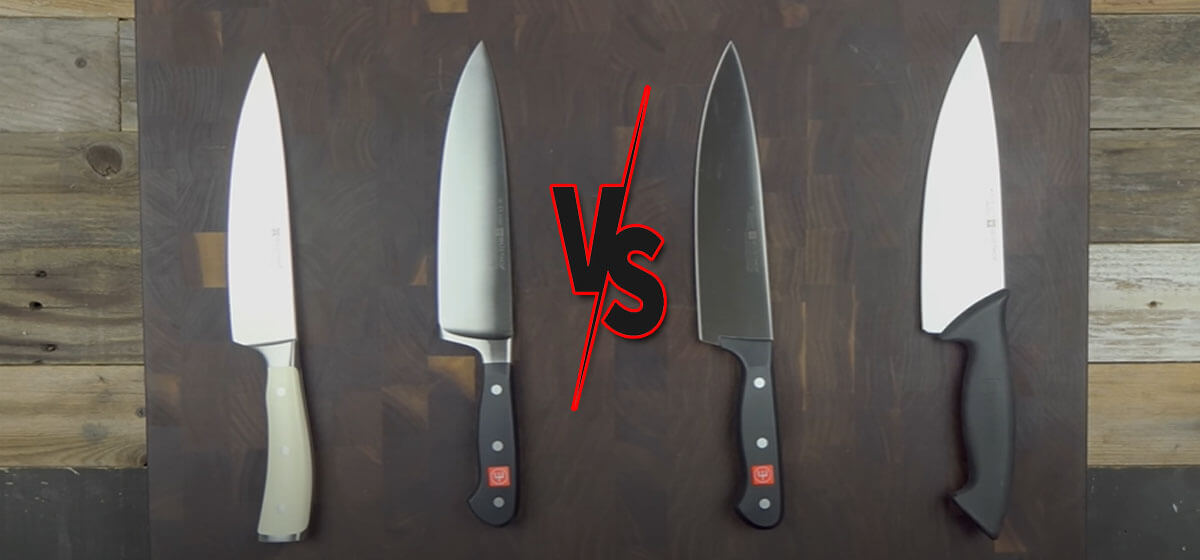Do You Have to Declare Knives in Checked Luggage: Essential Tips

As an Amazon Associate I earn from qualifying purchases.
Yes, you must declare knives in checked luggage to airline and security personnel. Ensure these items are securely wrapped and comply with the airline’s policies.
Traveling by air requires adherence to specific regulations, especially when packing potentially dangerous items like knives. Every country and airline has distinct rules governing the transportation of sharp objects, and abiding by these guidelines is crucial for safety and compliance.
Knives, being potential weapons, fall into this category, and transparency with airport authorities is non-negotiable. Securing knives in checked baggage, and not in your carry-on, is a standard procedure. It involves notifying the airline during the check-in process or at any pre-screening points. Understanding the necessity of this protocol helps ensure a smooth, hassle-free travel experience, maintaining safety standards for all passengers aboard. Remember, checking the latest regulations before your flight will keep you informed and prepared, minimizing the risk of delays or confiscations at the airport.
Understanding Luggage Restrictions
Traveling can be an exhilarating experience, but before you rush off to the airport, it’s crucial to be aware of what you can and cannot pack. Specifically, if you’re someone who carries knives or other sharp tools, understanding luggage restrictions is not just helpful—it’s essential. Regulations vary depending on several factors, such as the airline’s policies and the laws of the departure and destination countries. Let’s dive into the specifics of these regulations and uncover the reasons why they are in place.
Differentiating Between Carry-on And Checked Luggage Rules
Packing for air travel means more than just fitting your belongings into a suitcase—it’s knowing the distinct rules that apply to carry-on and checked luggage. The difference is significant when it comes to traveling with knives. Here’s a straightforward look at what you need to know:
- Carry-on Luggage: Generally, carrying knives in carry-on bags is a no-go. Most aviation authorities, like the TSA in the United States, strictly prohibit knives apart from some exceptions like plastic or butter knives.
- Checked Luggage: When it comes to checked luggage, the rules relax a bit. You are usually allowed to pack knives in your checked bags; however, declaring them is a crucial step in many jurisdictions.
Before you pack, ensure you check the specific airline’s restrictions and any special requirements for declaring such items.
Reasons Behind Luggage Restrictions And Security Measures
Safety is the mantra of air travel. The reasoning behind stringent luggage restrictions is not capricious but grounded in ensuring passengers’ safety. Focused on mitigating potential threats, these regulations make it possible for everyone to travel more securely. They aim to:
- Prevent the possibility of weapons being used on an aircraft.
- Mitigate the risk of accidents due to unintentional mishandling of dangerous goods.
- Comply with national and international laws related to air travel safety.
- Enable airport security personnel to effectively screen and manage the vast amount of luggage processed daily.
Adhering to these rules not only helps maintain a safe flying environment but also assists in avoiding potential legal issues or delays during your journey. Being informed is your first step towards a hassle-free travel experience.
Evaluating The Legality Of Knives In Luggage
Travelers often face a common concern: What items are permissible in checked luggage, particularly when it comes to carrying knives. The rules can seem complex and often vary by country and airline, but understanding these regulations is crucial to ensure a hassle-free journey. This section delves into the legality of knives in luggage and provides clear guidelines on what travelers can pack.
Overview Of Permissible And Non-permissible Knives For Travel
Not all knives are treated equally in the eyes of airport security. Knowing which knives are permissible and which are not can save travelers from legal issues or additional screening. To determine if a knife is allowed in checked baggage, consider factors like purpose, design, and blade characteristics.
- Cutlery: Standard kitchen cutlery often finds acceptance for travel in checked luggage.
- Pocket Knives: Small pocket knives are typically allowed but always check the airline’s specific blade length restrictions.
- Professional Equipment: Chef’s knives or other professional tools may be permitted if properly secured.
- Restricted Items: Weapons such as switchblades, gravity knives, or combat knives are generally not allowed.
How Knife Blade Length And Type Affect Legality In Checked Baggage
The legality of carrying a knife in checked luggage commonly hinges on the blade length and type. Some destinations have clear-cut rules specifying maximum permissible blade lengths, while others focus more on the type of knife.
|
Knife Type |
Max Blade Length (Inches) | Common Travel Regulations |
|---|---|---|
| Standard Pocket Knives | 2-4 | Generally allowed with length restrictions |
| Sporting Knives | Varies | May be permitted, subject to scrutiny and local laws |
| Combat Knives | N/A | Typically prohibited |
Always verify with the airline and local regulations before packing knives in checked luggage to avoid inadvertently breaking laws or facing penalties. The Transportation Security Administration (TSA) provides comprehensive guidelines, but since rules can vary globally, double-checking destination-specific laws is a prudent step.
Handling Knife Declarations Properly
Traveling with knives, be they culinary tools or collectibles, requires adherence to airline safety protocols and regulations. Understanding how to properly declare knives in checked luggage is crucial for a hassle-free journey. It’s not just about following the law; it’s about ensuring the safety and peace of mind for all passengers, including yourself.
Process Of Declaring Items In Checked Luggage
The process of declaring knives or other sharp objects in checked luggage is straightforward but vital. Here’s how to do it:
- Review your airline’s policies ahead of time to understand their specific requirements for declaring knives.
- When packing, place knives in secure sheaths or containers to prevent injury when luggage is being handled.
- At the airport, inform the check-in agent that you have knives in your checked luggage. They will guide you through the declaration process.
- Fill out any necessary declaration forms provided by your airline or the TSA (Transportation Security Administration).
- Make sure to receive confirmation that your declaration has been noted and attached to your luggage information.
Situations Where Declaring Knives Is Necessary
Not all trips with knives will require declaration, but there are specific situations where it is mandatory:
- International travel typically has stricter regulations and declaring knives can prevent customs delays or confiscations.
- If your knife is of significant value or is considered a dangerous weapon, it must be declared.
- Some destinations have strict laws against certain types of knives, making upfront declaration imperative for legal compliance.
- In cases of large quantities or unusual types of knives, expect to declare these to ensure they’re not misconstrued as commercial goods or contraband.
Failure to declare such items might lead to penalties, loss of the knife, or even legal action. Airline staff and security personnel are trained to handle these declarations with discretion and efficiency, making the process simpler for everyone involved.
Specific Airline Regulations Regarding Knives
Understanding the regulations for traveling with knives is essential for anyone looking to fly with these items in their checked luggage. While general guidelines exist, it is important to recognize that specific airline regulations regarding knives may vary and can affect your travel experience. This section provides insights into how major airlines handle the transport of knives, equipping travelers with the knowledge needed to navigate these rules.
Comparing Policies From Major Airlines
Each airline has its own set of rules about knives in checked baggage. Here’s a brief comparison of policies from some of the major airlines:
|
Airline |
Knife Policy |
|---|---|
| Delta Air Lines | Permits knives in checked luggage but prohibits these items in carry-on bags. |
| American Airlines | Knives are allowed in checked luggage with certain restrictions on size and type. |
| United Airlines | Allows knives to be transported in checked bags, excluding certain types such as martial arts weapons. |
| Southwest Airlines | Accepts sheathed or securely wrapped knives in checked luggage only. |
| British Airways | Knives can be checked in as long as they are not illegal or considered dangerous goods. |
Bear in mind that this information is not exhaustive, and policy details may change. Always verify with the latest information provided by the airline.
Contacting Airlines For Clarification And Updates
Given the potential for policy changes, direct communication with airlines is advisable before flying:
- Visit the official airline website. Look for the ‘Baggage Policy’ or ‘Restricted Items’ section for current information.
- Call the airline’s customer service number. This allows for personalized assistance and the opportunity to ask specific questions.
- Engage with airline support via social media or email if you prefer written documentation of their policies.
- Check updates close to your travel date, as regulations can evolve due to security alerts or legislative changes.
Ensuring you have the most current information on knife policies with your chosen airline will lead to a smoother and stress-free travel experience.
Navigating International Knife Laws
Many travelers overlook the complexities involved in carrying knives while traversing international borders. To ensure a stress-free journey, it’s essential to understand and comply with the varying knife legislations of different destinations. Knife laws can be intricate and widely different from one country to another. Familiarizing yourself with these regulations before packing your checked luggage is not just prudent, it’s a necessity.
How International Destinations May Differ In Knife Regulations
International destinations have distinctive approaches towards knife regulations, with some countries maintaining strict policies and others adopting more relaxed attitudes. The variance in regulation may include:
- Blade length restrictions: Some countries impose limits on the length of knife blades that can be legally carried.
- Type of knives allowed: Certain types of knives, such as switchblades or butterfly knives, might be banned outright regardless of blade size.
- Intended use: Knives intended for specific uses, like cooking or sports, might have more lenient regulations compared to those designed for combat.
Conducting thorough research or consulting legal experts can save you from potential detainment or penalties at customs. It’s advisable to directly verify information with official government sources or embassy advisories of your intended destination.
Preparing For Customs And Security Checks Abroad
Understanding a country’s knife laws is just the beginning; preparing to pass through customs and security checks is the next critical step. Here’s how to stay ahead:
- Documentation: Have all necessary documents ready, such as import licenses or permits required by the destination country.
- Transparent Packing: Pack knives in a clear and professional manner that doesn’t raise suspicions. Ensure knives are sheathed and securely wrapped.
- Declaration: Always declare any items that could be seen as weapons to avoid misunderstandings during security checks.
By diligently adhering to these steps and being fully transparent with customs officials, you can avoid unnecessary complications during your travels.
Ensuring Safe Transit For Checked Knives
Traveling with knives in checked luggage requires careful consideration to ensure they arrive safely and adhere to airline regulations. Whether you’re a chef traveling with professional equipment or a camper preparing for a wilderness adventure, securing knives properly during transit is paramount. To prevent injuries and ensure that your cutlery reaches your destination without incident, follow these essential packing practices and guidelines.
Recommended Packing Practices For Knives
To guarantee the safety of all baggage handlers and prevent any damage to your knives, abide by these recommended packing practices:
- Inform the airline: Always declare the presence of knives when checking in your luggage. Transparency prevents misunderstandings and ensures compliance with airline policies.
- Secure the blade: Wrap the blade in several layers of bubble wrap or thick fabric to cushion and immobilize it.
- Stabilize the knife: Ensure the knife cannot move within its wrap by securing it with tape. Limiting mobility reduces the risk of accidental piercing through the material.
- Rigid containers: Place the wrapped knife into a hard-sided box or protective case to safeguard against impact and pressure changes.
- Central packing: Position knives in the center of your checked luggage, surrounded by clothes or other soft items, to provide additional padding and shock absorption.
- Inventory list: Create a detailed inventory of the knives packed and keep it with you. Should any issues arise, you have a record to reference.
Using Appropriate Sheaths And Cases
Choosing the right type of protection for knives during travel is critical:
- Knife sheaths: Opt for sheaths that fully cover the blade and secure firmly to prevent the knife from slipping out.
- Custom cases: Consider investing in customized cases that snugly fit your knives if traveling frequently. These often feature foam inserts cut to the shape of each knife.
- Lockable cases: Select cases that can be locked to detour unauthorized access.
By implementing these measures, your knives remain secure and intact from departure to arrival. Always verify the latest regulations with your specific airline and destination, as knife transportation policies can vary. With the right preparation, you can transport your knives with peace of mind, ready for use at your final destination.
Situations When Knife Declaration Is Mandatory
Traveling with knives in your checked luggage may seem straightforward, but it’s essential to be aware of specific situations when declaring these items is not just advisable, it’s required by law. Navigating these rules can be the difference between a smooth trip and a significant inconvenience.
Instances Where You Must Declare Knives In Checked Luggage
Understanding the scenarios that necessitate a declaration of knives in your checked luggage is crucial for any traveler. These instances may differ depending on various factors, including airline policies, legal regulations, and the destination’s specific laws. Below are the common situations that mandate a knife declaration:
- Traveling internationally where laws regarding knives differ from your departure point
- When your knives are classified as martial arts weapons, antiques, or have historical value
- If the knives are particularly large or have unusual designs that could categorize them as potential weapons
- In situations dictated by the airline due to special handling or storage requirements in the cargo hold
Consequences Of Failing To Declare
Failure to declare knives in your checked luggage carries significant drawbacks. Authorities may subject violators to a range of consequences, including but not limited to:
- Fines or penalties: Financial repercussions can be imposed for undeclared items
- Confiscation of the item: Knives may be permanently removed from your possession
- Delay or denial of boarding: Authorities may prevent you from boarding your flight
- Criminal charges: In severe instances, legal action could be taken if the offense violates transportation security laws
Adhering to these declaration requirements is not just about avoiding penalties; it’s about ensuring the safety and security of your journey and the well-being of all passengers on board.
Smart Practices For Knife-carrying Passengers
Smart Practices for Knife-Carrying Passengers often distinguishes a smooth travel experience from a problematic one. Travelers packing knives in their checked luggage must remember that safety protocols and regulations are tight. Complying with rules is non-negotiable, and understanding the best way to carry knives legally and securely can significantly streamline your journey.
Best Practices For A Hassle-free Experience
For passengers looking to ensure a trouble-free trip, following these guidelines is crucial:
- Check Airline and TSA Guidelines: Before packing, always review the latest policies for knives on your specific airline and the Transport Security Administration (TSA) regulations.
- Use Sheaths or Secure Cases: Protect knife blades with a sheath or a hard case to prevent injury and accidental activation.
- Notify Agents: Although not mandatory, it’s a good practice to inform check-in staff about knives in your luggage. This can preempt any potential confusion during luggage scanning.
- Document Your Items: Keep a detailed list or take photos of the knives you’re transporting, ensuring you have proof of ownership and content.
Avoiding Common Mistakes When Packing Knives In Checked Luggage
Here’s how to dodge typical pitfalls that could disrupt your travel plans:
|
Mistake |
Consequence | Prevention Tip |
|---|---|---|
| Packing Knives in Carry-Ons | Immediate confiscation and possible fines. | Ensure all knives are in checked luggage only. |
| Loose Blades | Increased risk of injury and suspicion during scanning. | Secure knives in sheaths or cases, wrapped in sturdy materials. |
| Not Researching Destination Laws | Potential legal issues upon arrival. | Investigate and comply with local knife laws for your destination. |
| Failing to Declare When Required | Legal penalties or delays. | Check if your destination country requires a declaration of knives and proceed accordingly. |
Frequently Asked Questions Of Do You Have To Declare Knives In Checked Luggage
Is Declaring Knives Mandatory For Checked Luggage?
Knives in checked baggage require declaration to the airline per TSA regulations for safety purposes.
What Types Of Knives Are Allowed In Checked Baggage?
Most household knives and tools are permissible in checked luggage, barring explosives or incendiaries.
Are There Any Knife Restrictions In Checked Luggage?
Checked luggage can include knives, except for those resembling explosives or with illegal traits.
How Do I Declare Knives When Checking A Bag?
Inform the airline at check-in and ensure the knives are securely wrapped and sheathed.
Can Kitchen Knives Be Packed In Checked Baggage?
Yes, kitchen knives can be packed in checked luggage provided they are securely wrapped.
What Happens If I Don’t Declare Knives In Checked Luggage?
Undeclared knives may result in security alerts, baggage holds, and potential legal consequences.
Are Hunting Knives Permitted In Checked Luggage?
Hunting knives are typically allowed but must be declared and securely packed to avoid injury.
Will Knives In Checked Luggage Affect Travel Insurance?
Undeclared knives leading to security incidents can potentially void travel insurance coverage.
Conclusion
Navigating airport security with knives in your checked luggage is straightforward once you’re informed. Always declare such items to avoid surprises during baggage inspection. Ensuring compliance with these regulations promotes safety for all travelers and streamlines your journey. Remember, responsible packing is key to a hassle-free flight experience.
Amazon and the Amazon logo are trademarks of Amazon.com, Inc, or its affiliates.





Its like you learn my mind! You appear to know a lot about
this, such as you wrote the book in it or something.
I believe that you just could do with some p.c.
to power the message house a bit, however instead of that, this is great blog.
An excellent read. I will certainly be back.